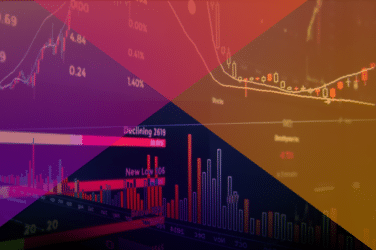New research produced by GreySpark Partners, a leading global capital markets consultancy, examines the role that a new breed of Big Data known as Smart Data can play in maximising the value of the client-facing and operational data assets continually maintained by buy-side and sell-side firms in the daily running of cash equities, fixed income and currencies (FIC) trading businesses.
At issue for asset managers and investment banks alike in 2019 is the extent to which the electronification of trading across all major asset classes precipitates ever-larger levels of portfolio managers or traders demand for granular, real-time intelligence required to support meaningful, daily decision-making across a range of front-, middle- and back-office functions. The new GreySpark article titled Smart Data Analytics: Realising the Value of Untapped Opportunities – produced in partnership with data analytics vendor Mosaic Smart Data – argues that those types of real-time intelligence inputs, which define and underpin the concept of Smart Data, are set to become more important over the next 3-5 years from a client performance analytics, competitive differentiation and value creation perspective. Specifically, Smart Data will not only be meaningful within the daily operations of buy-side and sell-side trading firms, but also for:
- custodian banks;
- brokerage, trading venue/exchanges and electronic communications network operators; and for
- central banking and regulatory institutions.
However, in order for the realisation of the value that the use of Smart Data outputs can bring, equities and FIC markets participants globally must first undo decades of legacy, siloed data capture, management and storage architecture that is no longer fit-for-purpose from a costs management perspective in the algorithmic and quantitative business and trading models of the future. For example, the new GreySpark research found that Tier I to Tier III investment bank spending on cash equities and FIC trade execution-linked data products and services alone grew by 5% year-on-year in 2019, and will likely continue to increase at the same rate through to the end of 2020.
Those markets and transactions raw data inputs – provided by exchange groups, inter-dealer brokers and specialist market data providers – are increasingly managed by investment bank consumers through the use of in-house built open API technology stack architecture as well as through the use of vendor-provided order and execution management systems on a trading desk-by-trading desk basis in order to contain costs growth over the short-to-medium term. Herein, the addition of Smart Data inputs and Smart Data analytics software comes to the fore in the form of desktop applications capable of creating actionable, real-time overviews that incentivise evidence-based decision-making both within an agency- and principal-based trading business model.
As such, GreySpark believes that if market data costs continue to consume an ever-greater percentage of financial markets trading firm costs over time, then the cultural implications associated with the capability to act intelligently on that data in real-time using Smart Data and Smart Data analytics becomes palpable.
Russell Dinnage, Head of GreySpark’s Capital Markets Intelligence practice and article author, said: “GreySpark believes that the inclusion of Smart Data analytics capabilities into the institution-wide data strategy equation can create new opportunities over time to not only offset the depreciation of data assets, but also to drive the uptake of cultural understanding that Smart Data is an investment class in and of itself – one that is capable of creating distinct markers as to how ITO expenditure on overall data quality maintenance can act as an engine for commercial growth. Now is the time for financial institutions to act on their data strategy and for data vendors to add value to the data they sell.”
Matthew Hodgson, CEO & Founder of Mosaic Smart Data, said: “Financial markets participants must evolve from a focus on the sheer volume of data firms are collecting and, instead, should consider more rigorously how effectively they are extracting the value from the data they have. As this paper demonstrates, without the right tools and specialist analytics, Big Data can quickly turn into a costly liability. In competitive markets with increasing electronification, spread and margin erosion, firms that cannot make this shift will rapidly fall behind. Those organisations that adopt Smart Data tools early, however, will find the benefits cascading throughout the business, with improvements across job functions from the back-office right through to front-line production roles across sales and trading desks.”






